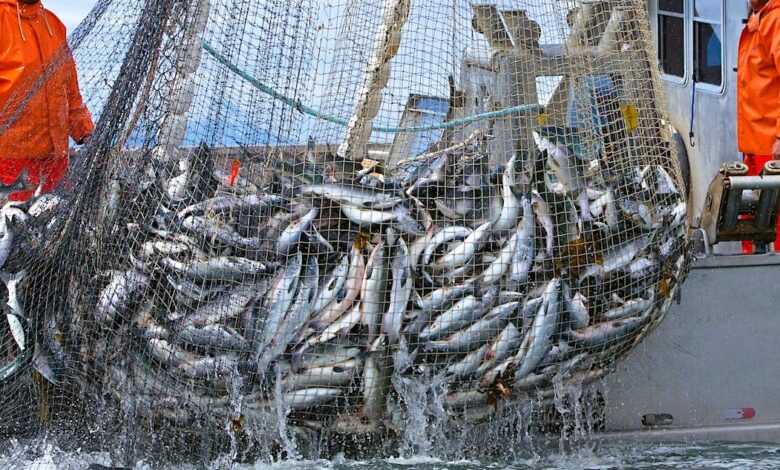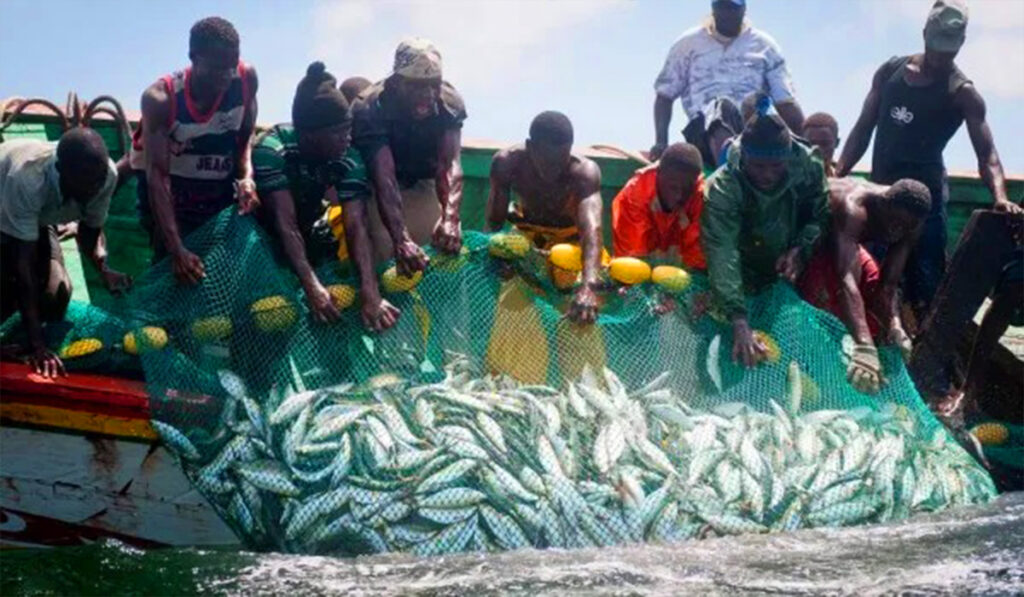“Plundering the Seas: Unsustainable Practices of Foreign-Owned Fishing Fleets Threaten Coastal Communities in the Gulf of Guinea and Mauritania”

Story by: Attipoe Shine Nutepe
Attribution:– While the content of this article is made possible under the Promoting Transparency, Accountability and Local Capacity to Address the Destabilizing Impacts of Foreign-Owned Distant Water Fishing Vessels (DWFV) in the Gulf of Guinea and the Waters of Mauritania project, the opinions and connotations are entirely that of the Author and do not reflect the position or alignment of the funding agency – U.S. Department of State or the project implementing partners, the Centre for Maritime Law and Security (CEMLAWS) Africa, and the Centre for Coastal Management (CCM) at the University of Cape Coast.
As tourism and fishing industries continue to thrive in the Gulf of Guinea and Mauritania, the devastating effects of unsustainable fishing practices by foreign-owned fishing fleets are being felt by local coastal communities. Plundering the seas for profit has led to the decline of marine resources, threatening the livelihoods and sustainability of these communities. In this article, we will delve into the damaging impacts of these unsustainable practices and explore possible solutions to protect the Gulf of Guinea and Mauritanian waters from further exploitation.
It is no secret that the Gulf of Guinea and Mauritanian waters are rich in marine fisheries resources, making them attractive destinations for foreign-owned fishing fleets. However, the unsustainable exploitation of these resources by these fleets has resulted in severe consequences for the environment and the communities that depend on them. Overfishing and destructive fishing methods such as trawling have led to the depletion of fish stocks, leaving local fishermen with limited resources to sustain their livelihoods. This has caused a ripple effect on the entire ecosystem, disrupting the delicate balance of marine life.
Moreover, the use of large-scale industrial fishing vessels has also led to the destruction of marine habitats, including coral reefs and sea grass beds. These habitats serve as nurseries for many species of fish and marine creatures, and their destruction could have long-lasting effects on the entire ecosystem. This not only affects the local fishing communities but also the coastal tourism industries that rely on a healthy marine environment.
The impacts of unsustainable fishing practices go beyond environmental concerns, as they also have significant socio-economic consequences for coastal communities. With the decline of fish stocks, local fishermen struggle to make a living, resulting in food insecurity and economic instability. This has led to increased poverty and a rise in illegal fishing activities, as desperate fishermen resort to unsustainable practices to survive. The resulting competition for resources has also caused tensions between local and foreign fishing fleets, further exacerbating the issue.
The Gulf of Guinea and Mauritania are not the only countries facing these challenges. The United Nations Food and Agriculture Organization (FAO) estimates that unsustainable fishing practices cost the global economy a staggering $50 billion annually. If left unchecked, these practices could lead to the collapse of marine ecosystems, jeopardizing the food security and livelihoods of millions of people worldwide.
So, what can be done to address these issues and protect the Gulf of Guinea and Mauritania from further exploitation? The first step is to enforce existing laws and regulations that limit fishing activities and protect marine resources. Governments in the region must work together to improve the monitoring, control, surveillance and enforcement on the activities of foreign-owned fishing fleets. Collaboration between countries and the sharing of information can help prevent illegal, unreported, and unregulated fishing.
Furthermore, investing in sustainable fishing practices and promoting small-scale fisheries can also help to alleviate the stress on resources and support local fishing communities. Implementing catch quotas, closing certain areas for fishing, moratorium on new fishing vessels, and promoting responsible fishing methods can all contribute to the conservation of marine resources and the protection of coastal communities.
In conclusion, the unsustainable practices of foreign-owned fishing fleets in the Gulf of Guinea and Mauritania pose a significant threat to marine resources and the communities that depend on them. It is time for governments, international organizations, and the fishing industry to come together and take action to protect these valuable resources. By implementing and enforcing sustainable fishing practices, we can ensure a healthy marine environment.





